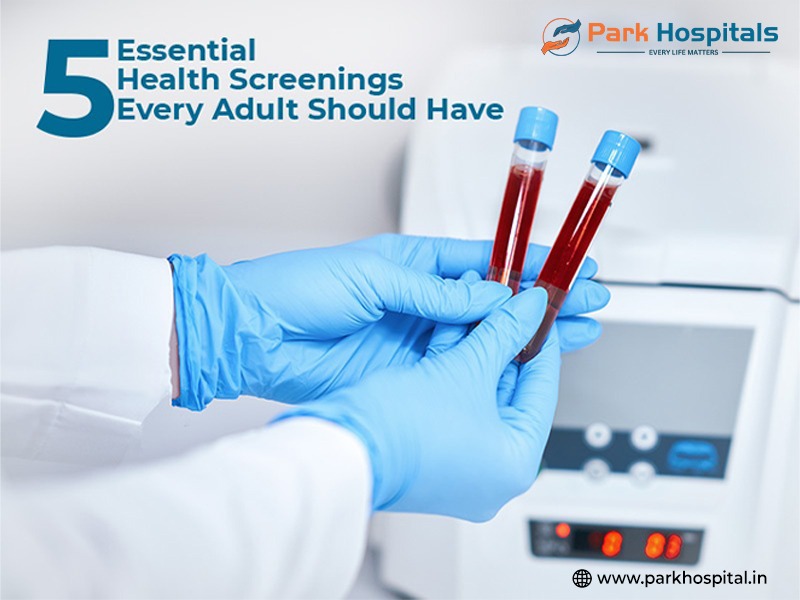When it comes to our health, we often know which specialists to consult for specific issues—general practitioners for check-ups, cardiologists for heart problems, and dermatologists for skin concerns. But what about urologists? If you've never thought about seeing a urologist, you're not alone. Many people don't fully understand what these specialists do or when they should consult one.
In this article, we'll delve into the role of a urologist, explain why you might need to see one and help you understand the wide variety of issues they treat at Park Hospital.
What is a Urologist?
In simple terms, a urologist is a medical professional who specialises in the urinary tract system and male reproductive organs. Urologists are trained to treat a wide range of conditions, some of which are common and some of which may require more specialised care. Specialists like urologist in Faridabad at Park Hospital are in a medical field that focuses on the diagnosis and treatment of diseases and conditions that affect both men and women, although the most common association is with male reproductive health.
What Does a Urologist Do?
Urologists treat conditions related to several body parts, including:
● The kidneys – the organs that filter waste from your blood to create urine.
● The bladder – the organ that stores urine until it's expelled from the body.
● The urethra – the tube that carries urine from the bladder out of the body.
● The prostate (in men) – the gland that makes some of the fluids in semen.
● The testes (in men) – the organs that produce sperm and hormones.
Along with the urinary tract, they also handle conditions related to male sexual health. This may include erectile dysfunction, infertility, and sexually transmitted infections (STIs).
When Should You Consult a Urologist Specifically?
While it's not always obvious when to see a urologist, some several symptoms or issues should raise a red flag. Let's break down some common signs that might mean it's time to book an appointment with a urologist:
1. Urinary Problems
If you experience any issues with urination, it's important to take note. This could include:
● Frequent urination (especially at night)
● Painful urination (a burning or stinging sensation)
● Blood in your urine (haematuria)
● Inability to fully empty your bladder
● Incontinence (leakage or accidents)
These symptoms can indicate conditions like urinary tract infections (UTIs), kidney stones, bladder infections, or more serious conditions such as bladder cancer or kidney disease. A urologist can help diagnose the cause and provide treatment options.
2. Male Reproductive Health Issues
Men should consult a urologist in Faridabad consult a urologist if they experience any problems related to their reproductive health. This includes:
● Erectile dysfunction (ED): The inability to achieve or maintain an erection can be a sign of an underlying medical condition, such as diabetes, heart disease, or hormonal imbalances.
● Infertility: If you and your partner have been trying to conceive for a while without success, a urologist can assess male fertility and recommend treatments or lifestyle changes.
● Testicular pain or swelling: This could be due to conditions like epididymitis or testicular cancer, so it's important not to ignore it.
3. Painful Urination or Blood in Urine
If you're experiencing pain while urinating or notice blood in your urine, these are severe symptoms that should not be ignored. These could be signs of an infection, kidney stones, or even more severe conditions like bladder or kidney cancer. A urologist can help you understand the cause and recommend appropriate treatment options.
4. Kidney Stones or Chronic Kidney Problems
Kidney stones can cause severe pain, often in the lower back or sides. Other symptoms may include nausea, vomiting, or blood in the urine. Urologists are experts in diagnosing and treating kidney stones, using both surgical and non-surgical options depending on the size and location of the stones. If you have a history of kidney disease or notice persistent issues, a urologist should be consulted.
5. Prostate Issues (Men)
As men age, prostate problems become more common. Conditions like benign prostatic hyperplasia (BPH), which is the enlargement of the prostate, can cause difficulty urinating, frequent urination, or the feeling of needing to urinate urgently. A urologist can help manage BPH and assess for other conditions, including prostate cancer, which is the most common cancer in men.
Why Should You See a Urologist?
You might wonder why seeing a specialist for these issues is necessary. After all, your general physician can handle most health concerns, right? While your general practitioner can be a great first point of contact, a urologist specialist in Sonipat has specialised training in diseases and conditions related to the urinary and reproductive systems. They have advanced knowledge of diagnostic tools like ultrasounds, cystoscopy (a procedure where a tiny camera is inserted into the bladder), and blood tests that can give them a clearer picture of what's going on. Their expertise allows them to provide more tailored medical or surgical treatments.
What Can You Expect During Your Visit?
When you see a urologist, they'll start by reviewing your medical history and discussing your symptoms. Depending on your condition, they may perform a physical exam, which could involve a pelvic or prostate exam (for men). They may also order imaging tests like ultrasound or CT scans to get a closer look at your organs and detect any abnormalities.
If necessary, your urologist may prescribe medication, suggest lifestyle changes, or even recommend surgical procedures. Don't be afraid to ask questions about your diagnosis and treatment options. Urologists are there to help and will work with you to find the best course of action.
Take Control of Your Health
Urologists at Park Hospital play a key role in maintaining the health of your urinary and reproductive systems. While it can feel a little uncomfortable to talk about these issues, remember that urologists are trained professionals who deal with these conditions every day. If you’re experiencing any symptoms like frequent urination, erectile dysfunction, or pain in your reproductive organs, don't hesitate to schedule an appointment. Early diagnosis and treatment can often prevent more serious problems down the line, so take charge of your health and consult a urologist when you need it.
By understanding the role of a urologist specialist in Sonipat and recognising when it's time to seek expert care, you'll be on your way to better health, confidence, and well-being.
Also Read About:
The Role of Donors in Bone Marrow Transplants: How to Become a Donor































